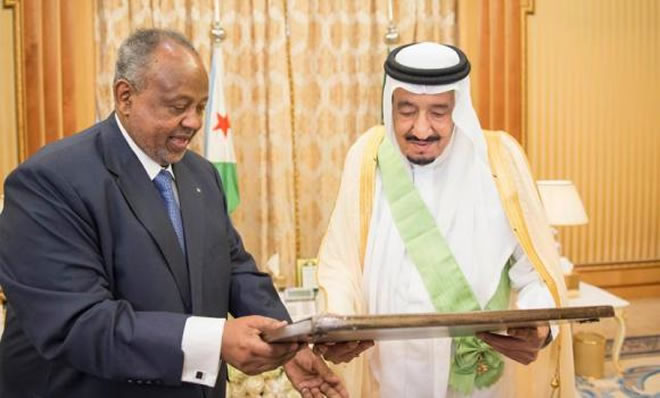Alwaght- Saudi-led regimes boycotting Qatar have 'bribed and blackmailed' several African countries to join its attempt to isolate Doha, Qatar's foreign minister has said.
In an interview with French-language news magazine Jeune Afrique , Sheikh Mohammed bin Abdulrahman Al Thani revealed that Saudi Arabia, Egypt, Bahrain and the United Arab Emirates have been compelling vulnerable African countries to cut ties with Doha.
On June 5, the four Arab regimes severed relations with Qatar and imposed a blockade against it, accusing Doha of funding "terrorism". Qatar has vehemently rejected the allegations as "baseless".
On June 22, the group issued a 13-point list of demands, including the shutdown of Al Jazeera TV, limiting ties with Iran, and expelling Turkish troops stationed in the country as a prerequisite to lifting the blockade. Doha rejected all the demands, denouncing them as attempts to infringe Qatar's sovereignty.
"The four countries mobilized all of their officials on the continent at the beginning of the blockade to pressure African states to adopt the same measures as them," Sheikh Mohammed said.
African countries resisted Saudi bribes
"Most of them resisted and remained faithful to the principles of international law. The ones who gave in were either blackmailed or were offered large sums of money," the Qatari foreign minister noted.
He also accused the Saudi-led bloc of resorting to "briefcase diplomacy" in Africa, stressing that gas-rich Doha has long sought to finance development in the continent.
Chad, Mauritania and Comoros all severed ties with Qatar in the wake of the worst diplomatic crisis in the Persian Gulf for years, while Niger and Djibouti recalled their ambassadors.
Speaking about Comoros' positioning in the spat, Sheikh Mohammed said: "We were the first Arab state to work in the Comoros."
"We supported them politically and in their development projects. They suddenly changed position because of an offer made to them."
He accused the Chadian government of similarly accepting a bribe from the UAE to turn against Doha despite years of close relations.
Senegal reinstated envoy to Qatar
Senegal initially sided with the Saudi-led bloc, recalling its ambassador, only to reinstate its envoy in August in what it said was a move to encourage a resolution to the Persian Gulf crisis.
"Dakar eventually realized that it had made the wrong decision," Sheikh Mohammed explained.
"Senegalese President Macky Sall told the Emir that he had been deceived and wanted to reinstate his ambassador in Doha."
The minister also stressed that Libya's Tripoli-based government has maintained relations with his country.
Somali president rejects $80 million Saudi bribe
In June, reports emerged that Somali President Mohamed Abdullahi Mohamed Farmaajo had rejected a $80 million bribe to join the Saudi-led boycott.
Somalia's government has rebuked its three semi-autonomous regions for cutting ties with Qatar, saying it was determined to stay neutral in the dispute.
The Qatari foreign minister also speculated on possible reasons behind geographically distant Gabon, which has condemned Qatar, siding with the bloc.
"This is probably the result of a deal. Some states are in need, and they cannot be blamed for succumbing to temptation," he added.
Egypt fails to coerce African countries
In August Egyptian President Abdel Fattah al-Sisi toured Gabon as part of his African visit which took him to Chad, Gabon, Rwanda and Tanzania. The visit came after Cairo failed to persuade the African countries to take a stance against Qatar during the African Summit in Addis Ababa July 4.
Media reports indicated that Algeria rebuked Egypt for its attempts to coerce African countries to adopt stances against Qatar during the African Summit. Diplomatic sources say African leaders who attended the summit in Ethiopia agreed that the continent should not meddle in the crisis between Qatar and the four Saudi-led regimes.



























